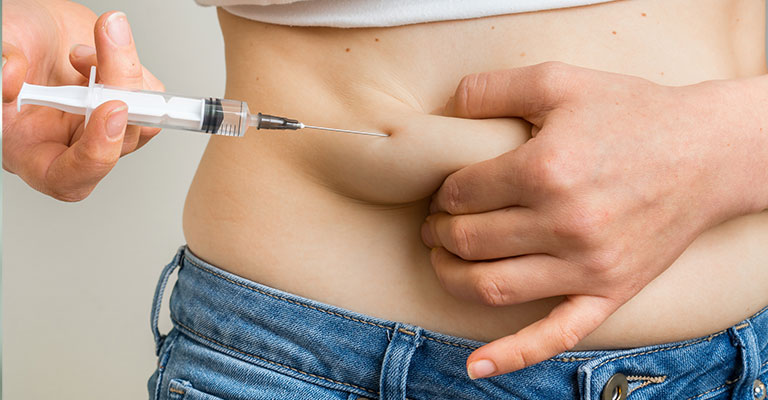Updated by the Progyny Clinical Team — June 2025.
If you’re undergoing fertility treatments, you’ll need to give yourself different injections on a schedule. Timing is especially important for human chorionic gonadotropin (hCG) injections.
It’s important to wait for the recommended amount of time, usually 10 days after the injection, before taking a urine pregnancy test. If you take a urine pregnancy test too soon, you may get a skewed result.
What is hCG?
hCG is a hormone that is primarily produced during pregnancy. It’s also the hormone detected in a pregnancy test, either using blood or urine.
However, hCG can also be used to mature eggs and induce ovulation. That’s because it is very similar in structure and function to the hormone known as luteinizing hormone (LH). LH levels rise or surge just prior to ovulation and induce the ovulatory process. So, giving hCG causes a similar response by the ovary to induce ovulation.
What is hCG used for in fertility treatment?
hCG mimics LH, which causes ovulation. Administering hCG helps time ovulation in intrauterine insemination (IUI) cycles or egg retrieval in in vitro fertilization (IVF) cycles. In IVF, the hCG injection is typically given about 36 hours before retrieval to help eggs mature and separate from the follicle.
hCG injections are used to induce the final maturation of eggs. Once mature, eggs can then separate from the cells within the follicle and be released or ovulated approximately 34 to 36 hours after the injection.
In IUI cycles, the hCG injection is used to make ovulation occur on a given day to help schedule the insemination at the ideal time for conception.
In IVF cycles, the hCG injection is given about 36 hours before the scheduled egg retrieval. This is done to optimize the timing of the egg retrieval to retrieve the maximal number of eggs. If you try to retrieve eggs without using hCG, they won’t separate from the follicular fluid and can’t be collected.
In natural (or non-medicated) embryo transfer cycles, an hCG injection is sometimes used to make ovulation happen on a given day to schedule the embryo transfer at the optimal time for implantation.
How long should I wait to take a UPT?
If you’ve had an hCG injection, it’s important to wait until the hormone has cleared your system before taking a test. This usually takes about 10 days but can vary depending on your individual metabolism and the dose of hCG used. Testing too soon may give a false positive, as the test may detect the hCG from your injection rather than hCG produced by a pregnancy.
Your healthcare provider will likely schedule a blood test 12 to 14 days after your IUI or 8 to 14 days after an embryo transfer for a more accurate result. The two-week wait can be tough, but taking at-home tests too early may lead to confusion.
Progyny is here for you. If you have any questions, please contact your Progyny Care Advocate for support.
Disclaimer: The information provided by Progyny is for educational purposes only and is not medical advice. Always consult a qualified healthcare provider for medical guidance.
